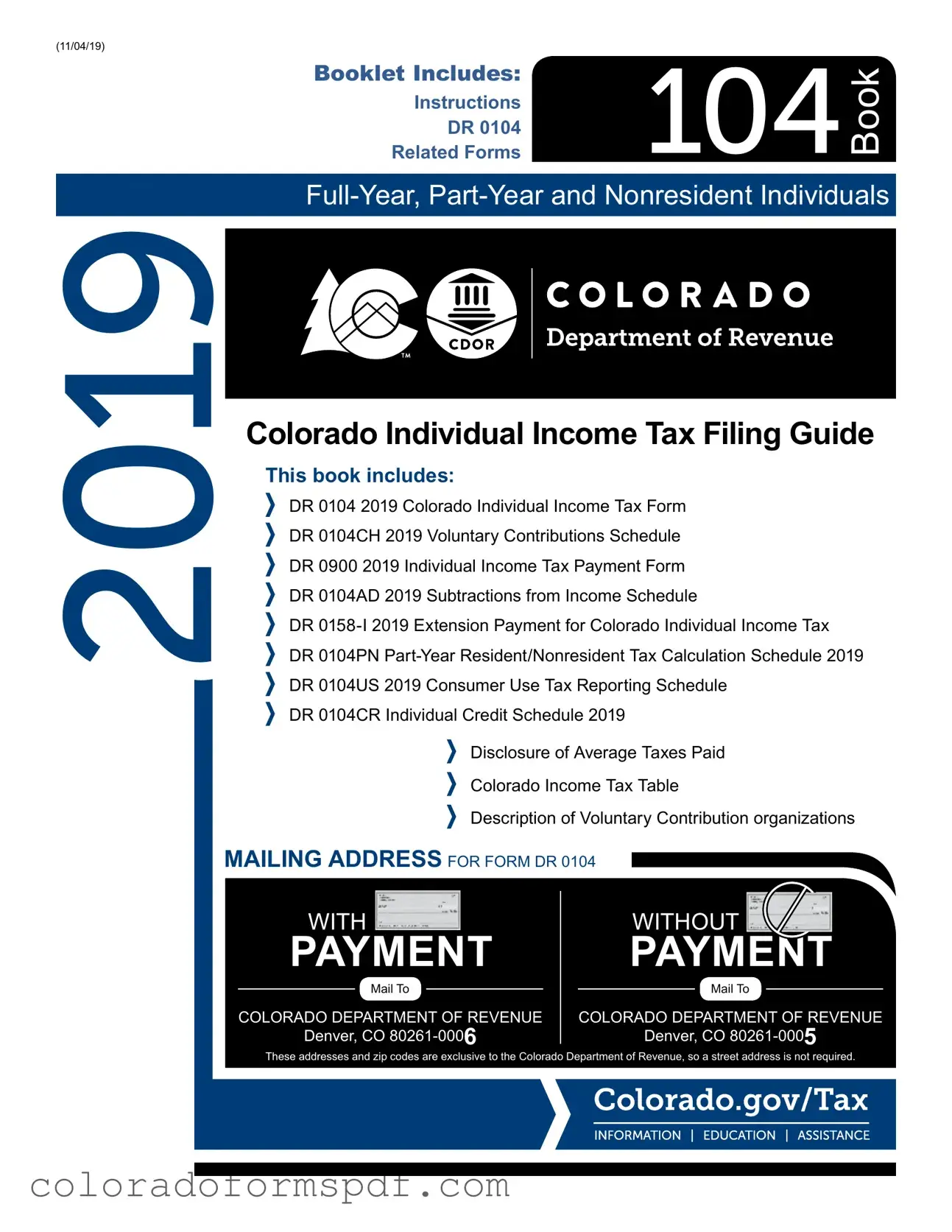Get Colorado Tax Form
The Colorado Tax Form is a document used by residents and non-residents to report their income and calculate their state tax liability. This form, officially known as the DR 0104, is essential for individuals who earn income in Colorado, whether they reside in the state full-time, part-time, or not at all. Understanding how to accurately complete this form is crucial for ensuring compliance with Colorado tax laws and for maximizing potential tax benefits.
Get Document Online

Get Colorado Tax Form
Get Document Online

Get Document Online
or
Download PDF
Quick form completion starts here
Edit and finish your Colorado Tax online, then download.